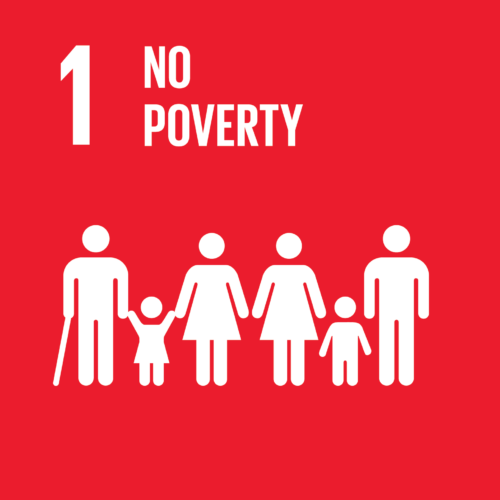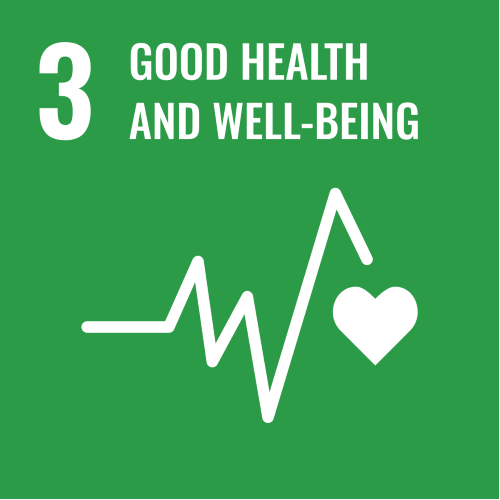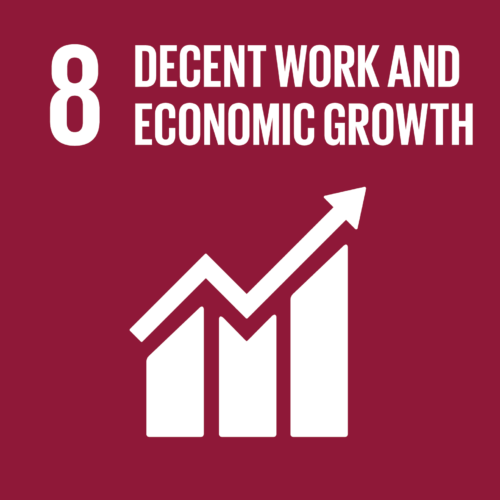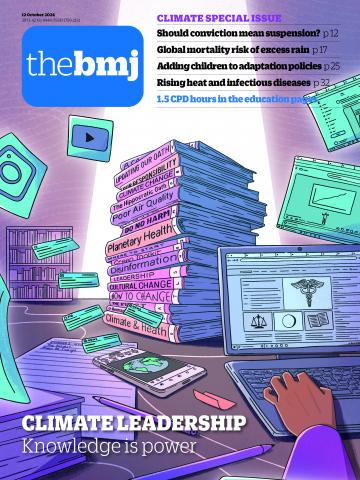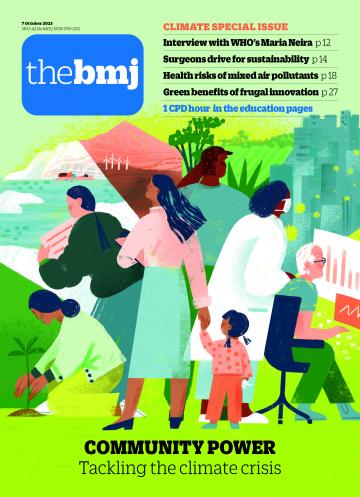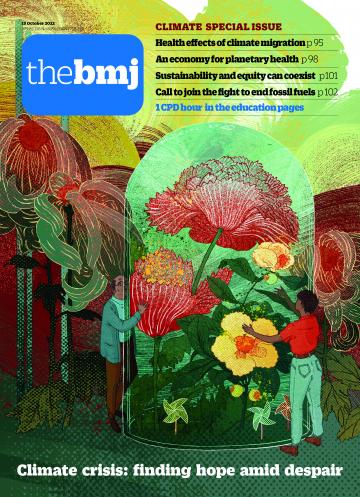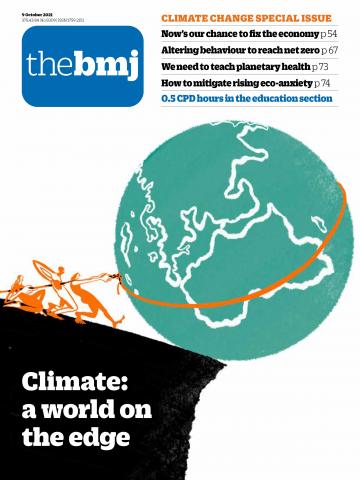Sustainability at BMJ Group
Advancing environmental, social, and governance goals
At BMJ Group, we champion a sustainable future by supporting communities and protecting the planet. As a responsible business, we integrate sustainability into everything we do, from reducing our environmental impact to promoting inclusivity and ethical governance.
A dedicated employee-based sustainability group and a leadership subcommittee drive our efforts to protect natural resources and support the well-being of future generations. Guided by our policies and Modern Slavery Statement, we prioritise ethical practices, transparency, and low impact solutions across our products and services.
Our sustainability framework
We focus on four key areas to drive lasting change:
Progress in reducing our impact for a sustainable future
Environmental and social responsibility, alongside business objectives. That’s why we’re acting now to reduce our environmental impact. Our choices must benefit the environment, our customers, and our business.
We are setting near—and long-term company-wide emission reductions in line with science-based net-zero targets, including achieving net-zero carbon emissions by 2040.
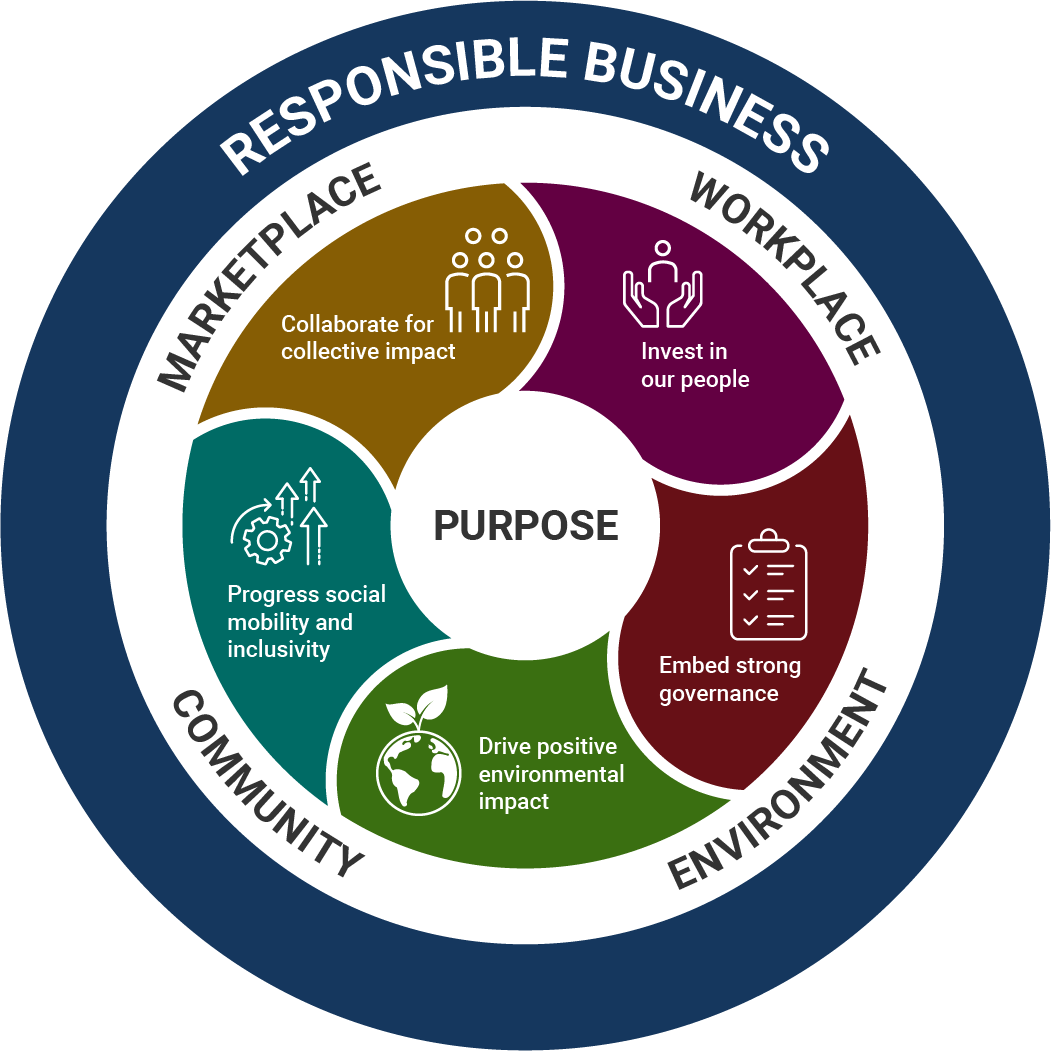

Driving positive environmental impact
Sustainably sourced paper
Every print issue we produce is made from paper that can be traced back to responsibly managed forests. This ensures that our publishing supports biodiversity, protects ecosystems, and contributes to sustainable forestry.
Innovative recycling in action
The BMJ is printed on paper from waste produced by Sweden’s eco-friendly home-building industry. This process repurposes timber offcuts—used as a sustainable alternative to concrete and cement—into high-quality publishing paper, helping to reduce waste and lower carbon emissions.
Eco-friendly packaging
We have transitioned most of our mailings to FSC paper wrap, eliminating plastic waste and ensuring full recyclability. We are working on making all our print mailings plastic-free by the end of this year.
These examples showcase how we make responsible choices at every step—so that healthcare knowledge can be shared without costing the earth.
Reducing the environmental impact of our journals


Sustainable paper sourcing
From The BMJ to the British Journal of Sports Medicine, Gut, Heart, Journal of Neurology, Neurosurgery & Psychiatry, and Thorax, we are minimising the environmental impact of all our print journals through responsible paper sourcing and digital innovation.
Every print issue is produced on paper that can be traced back to sustainably managed forests. The BMJ is printed on paper made from timber industry by-products—waste left over from Sweden’s environmentally friendly home-building sector, where wood is used as a sustainable alternative to concrete and cement.
We source our paper through Gould International UK, part of the world’s largest independent paper and pulp distributor, working with Swedish and Finnish mills such as Holmen, which, according the FisherSolve database, has an enviable reputation in terms of its CO2e measurements – it is the benchmark group against which all competition measures itself. The mill where our paper is produced for The BMJ has the lowest CO2e emissions for European graphical paper production, cradle to the gate (including scopes 1, 2 and scope 3 upstream). None of our paper comes from tree cutting; instead, it is made from by-products of other industries, reducing waste and environmental impact.
To further reduce waste, we have transitioned most of our mailings to Forest Stewardship Council (FSC) paper wrap, with the remainder set to follow by 2025. As we continue to evolve our print and digital publishing, we constantly evaluate the landscape to ensure we are sourcing the most suitable materials with the least environmental impact, which now sees us using paper from innovators such as Crown Van Gelder in the Netherlands.
We continuously work with all of our suppliers and industry-wide sustainability groups, such as the PPA’s Sustainability Action Group, to explore lower carbon options wherever possible.

Our carbon footprint
Across the business, we are taking decisive steps to minimise our environmental impact, with the clear goal of achieving Net Zero across our operations by 2040. We are embedding sustainability into every aspect of our business through a combination of carbon footprint evaluations, responsible sourcing, and a structured reduction plan.
We regularly assess our carbon footprint and take action to reduce our impact, from responsible paper sourcing to sustainable event planning. Our carbon reduction plan sets clear targets, and we are working closely with suppliers to meet strict environmental standards. By the end of this year, we want to have achieved ISO14001 certification.

“Every choice we make today drives lasting impact for a healthier world tomorrow.”
Chris Jones, Chief Executive Officer, BMJ Group
Support for Sustainable Development Goals
Across the Group, we uphold Sustainable Development Goals (SDGs) 1, 3, 8, and 13 in our operations and publications, aligning our business impact with tackling poverty, improving wellbeing, spreading the benefits of economic growth, and taking climate action.
In India, our BMJ Group sustainability champions have published its ambitious Sustainability Charter, clearly stating firm commitments to our four SDGs and aligning with India’s commitments under the Paris Agreement. To drive sustainable development even further, they have also partnered with the HCL Foundation, the organisation dedicated to alleviating poverty and achieving inclusive growth and development through a lifecycle-based integrated community development approach.
Collaborating for collective impact
We believe that collaboration is key to driving meaningful change. Through knowledge sharing, industry partnerships, and policy influence, we work to improve health outcomes and address global challenges, including the impact of healthcare on climate change and its broader implications for public health.
Sharing knowledge and expertise to improve health outcomes
By making high-quality research accessible, we empower healthcare professionals, researchers, and policymakers with the information they need to improve patient care and public health.

Policy influence and climate change advocacy
Our publications play a critical role in influencing healthcare policy and raising awareness of pressing global issues. From the impact of climate change on human health to the environmental footprint of healthcare practices, we provide evidence-based insights that drive policy discussions and inspire action.
The BMJ has been raising awareness about the climate crisis since the 1990s, emphasising its impact on health through changing patterns
of disease, extreme weather events, loss of biodiversity and disruption to healthcare.
More recently, The BMJ’s special climate issues have explored the intersection of climate and health, featuring research and perspectives from diverse regions. These publications highlight the urgent health challenges posed by climate change and call on healthcare professionals to take an active role in mitigation and adaptation—both in their clinical practice and at policy levels.
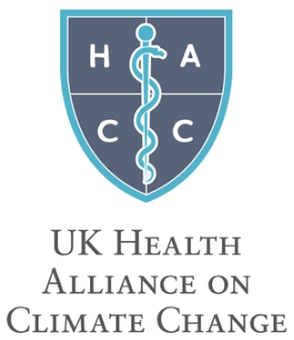
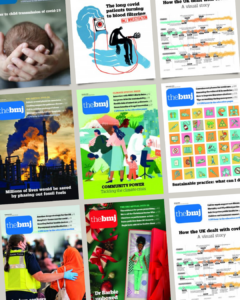
Collaborating for change
We actively collaborate with industry peers to promote sustainable practices and advocate for positive change. As members of the International Association of Scientific, Technical, and Medical Publishers (STM), The Association of Learned and Professional Society Publishers (ALPSP), Association of Online Publishers (AOP), APP Group, and the UK Health Alliance on Climate Change (UKHACC), we work alongside leading organisations to shape the future of publishing, champion open access, and support environmental sustainability within the industry.
The UKHACC coordinated more than 200 health journals to collectively call on governments to take emergency action to tackle the “catastrophic harm to health” from climate change. The joint editorial was published simultaneously in 233 international titles, including The BMJ, the Lancet, the New England Journal of Medicine, the East African Medical Journal, the Chinese Science Bulletin, the National Medical Journal of India, and the Medical Journal of Australia.
The BMJ also collaborated with the UKHACC to publish three joint editorials calling on world leaders to take emergency action. The editorials emphasised the health impacts of the climate emergency and the need for governments to do more and act faster to limit global temperature increases, restore biodiversity, and protect health.
The editorial, Call for emergency action to limit global temperature increases, restore biodiversity, and protect health, makes a compelling call for urgent, collective global action in response to the environmental crisis. It stresses the need to keep global temperature increases below 1.5°C, halt the ongoing loss of biodiversity, and protect public health. Health professionals warn that the adverse health impacts of rising temperatures and environmental destruction are already being felt, with vulnerable populations bearing the greatest burden.
The editorial urges wealthier nations to take the lead in accelerating emissions reductions and to support low-income countries in building more resilient, sustainable systems. It calls for bold, immediate actions, akin to the global response to the covid-19 pandemic, to avert further environmental and health crises. Without decisive intervention, the authors warn, the world risks irreversible damage to both health and the environment.
Since publication in September 2021, the editorial has garnered significant global attention, referenced by 102 news outlets, 2,222 social media users, and 77 Mendeley readers, demonstrating broad public and academic interest. Cited in 332 academic papers, the article also influences policy, with references in key documents from organisations like the International Institute for Sustainable Development and the InterAcademy Partnership. Its impact on global discussions about climate change, biodiversity, and public health is evident, underscoring its crucial role in shaping current and future policy.
The BMJ editorial Time to treat the climate and nature crisis as one indivisible global health emergency (October 2023) argues that the climate and biodiversity crises must be addressed together as a single, urgent health issue. It highlights the profound impacts of environmental degradation on human health and calls for coordinated global action. The editorial has received significant attention, ranking in the top 5% of research outputs scored by Altmetric. It has been covered by 34 news outlets, cited in the World Bank’s 2024 policy paper, The Cost of Inaction: Quantifying the Impact of Climate Change on Health in Low- and Middle-Income Countries, and widely shared across social media platforms, reflecting its influence on public and academic discourse.
The BMJ editorial COP27 climate change conference: urgent action needed for Africa and the world has had a significant impact on global climate and health discourse, as evidenced by its citation in at least 242 publications, including The Lancet, and the Journal of General Internal Medicine.
Its influence is particularly visible in the lead-up to COP29, with recent articles in The BMJ and The Lancet (October 2024) building on its argument that climate action cannot be delayed. These citations suggest that the editorial helped frame climate change as a pressing public health issue, particularly for Africa and other vulnerable regions.

“The [Climate Issue] is so fantastic, and everyone ignored the first hour of work to read through it cover to cover. There’s such a diversity of thoughts, all positive and pulling in the right direction.”
Nick Watts, Director of the Centre for Sustainable Medicine
To align our editorial voice with our internal operational practices, we have become a signatory of the United Nations Sustainable Development Goals Publisher Compact. We have also endorsed the eleven commitments established by UKHACC, promoting a positive impact on people and the planet in all aspects of its operational activities. A healthier world requires a healthier environment, and therefore, we prioritise global sustainability and becoming carbon neutral as a business by 2040, at the latest.
Fostering positivity and activism through the climate issues themes
In the 2021 climate issue, The BMJ published an opinion piece by Professor Mala Rao OBE and Richard Powell, highlighting the increasing levels of eco-anxiety, especially among children and young people, and its potential negative impact on individuals and society. The publication raised awareness and prompted action on the issue of eco-anxiety. It gained national media attention and was featured in The Guardian.
Following the publication of the opinion piece, Professor Rao, one of the authors and a member of The BMJ’s climate steering committee, was invited to lead a special issue on eco-anxiety for the Royal College of Psychiatrists.
Following the publication of the opinion piece, Professor Rao, one of the authors and a member of The BMJ’s climate steering committee, was invited to lead a special issue on eco-anxiety for the Royal College of Psychiatrists.
Social mobility and inclusivity
Our vision of creating a healthier world is evident in our collaborative efforts to design and implement projects that enhance community wellbeing. We strive to make a difference across all the communities we serve worldwide.
A key focus for us is empowering future generations by providing new opportunities. In 2024, we took action to address social mobility disparities. A conversation with a school career counsellor highlighted the widening gap in the UK between middle-class students with access to enriching work experiences and those from disadvantaged backgrounds who miss out. To bridge this gap, we partnered with local schools to offer work experience placements exclusively for 55 students on free school meals. This initiative is a cornerstone of our social mobility agenda, reflecting our commitment to fostering social equity and career development.

Empowering social mobility through our work experience programme
Our work experience programme is a robust initiative that supports minority individuals and contributes to societal efforts to promote equity and inclusion. Participants in our programme gain practical insights into various workplace skills, enhance their career prospects, and build their interpersonal skills. Exposing
students to professional environments make these settings more accessible and less intimidating, fostering a sense of belonging.
The programme builds community partnerships with local schools, ensuring that it reaches those who need it most and maximises student development. Unlike traditional human resource efforts, our initiative reflects our deep commitment to addressing educational inequalities. It does this by providing valuable work experience in a way that also actively promotes social mobility. Our work experience programme helps to differentiate BMJ Group from other organisations, demonstrating our dedication to creating meaningful and lasting change.
Investing in these students’ potential paves the way for a more equitable society. We set a precedent for other organisations and showcase how targeted initiatives can drive broader social transformation.

Supporting young people through our coaching project
We believe in creating opportunities that empower the next generation. That’s why we run dedicated initiatives to support young people from disadvantaged backgrounds, helping them build confidence, develop key skills, and gain valuable insights into the world of work.
Through our Coaching Project, we provide Year 10 students with one-to-one coaching sessions designed to build their aspirations, develop career readiness, and enhance their confidence. Our team of experienced mentors works closely with students from disadvantaged backgrounds, offering guidance on goal setting, decision-making, and future career pathways.
Prioritising students on free school meals for work experience
We want to make our work experiences accessible to those most in need. By partnering with local schools, we can accommodate students on free school meals and give them priority access to our work experience programme. In 2024, we welcomed 30 students over three weeks, providing hands-on experience across different departments, from publishing and technology to marketing and editorial.
Through these initiatives, we can break down barriers and equip young people with the tools they need to thrive in their future careers.

Giving back through volunteering and charity work
Across the Group in all departments, we work together to make a positive impact in our communities through long-standing charity partnerships and team member volunteering. We regularly support the Euston Food Bank, donating essential items and funds while encouraging our employees to volunteer their time. We also contribute to other important causes, including Young Minds, a mental health charity for children and young people. To further empower our employees to give back, we offer two days of paid volunteering leave per year, enabling them to support causes that matter to them.

“Our first collection for Euston Foodbank in 2020 raised 58kg of donations. Then the pandemic hit, and I thought that was it. But in true BMJ Group fashion, our wonderful colleagues continued to support Euston Foodbank—whether through financial contributions or their own local foodbanks—and this initiative continues to grow.
In 2024 alone, we collected 946kg of food, with BMJ Group donating £200 per filled crate, raising £4,400. Staff have also volunteered to see first-hand the vital work foodbanks do—a true testament to our generosity and BMJ Group’s community spirit.”
Geetha Balasubramaniam, Business Manager, Publishing and Events, BMJ Group
Supporting diversity in journalism
BMJ Group is also an official partner of the National Council for the Training of Journalists’ (NCTJ) Journalism Diversity Fund (JDF). This means we contribute financially and actively participate in the JDF’s mentoring programme by allowing successful candidates to gain insights into the specialised branch of journalism.
Investing in our people
Our people are at the heart of everything we do. We nurture their growth to ensure they thrive in all aspects of their work.
We provide individualised development plans, Clifton strengths assessments and regular performance reviews to support our employees’ growth and career progression.
We also offer a comprehensive benefits package that includes generous leave entitlements, flexible working arrangements, and support for work-life balance. Our culture is a positive and supportive work environment through team member networks and initiatives that promote financial, physical, and emotional wellbeing and engagement.
Championing equity, diversity, and inclusion
We are proud of our success in fostering a workplace where everyone feels valued, respected, and empowered to thrive. Our comprehensive equity, diversity, and inclusion policies ensure that inclusivity is woven into everything we do.
Our thriving employee-led networks—focused on gender, LGBT+, mental health and disabilities, race and ethnicity, carers, and parents and guardians—create safe spaces for peer support, open dialogue, and meaningful change. These networks are vital in promoting equity, challenging barriers, and shaping a more inclusive culture across BMJ Group.
Our vision for the future
We continuously improve our sustainability performance to create a lasting positive impact on society and the environment. By partnering with like-minded organisations and advocating for a greener future, we are driving meaningful change and creating a healthier, more sustainable world for all.
Meet our Sustainability Steering Committee
Our dedicated senior leadership steering committee guide our Group-wide sustainability efforts, ensuring alignment with business goals and industry best practices. With a strategic approach, the committee drives initiatives that promote environmental stewardship, social responsibility, and long term value creation.

Kamran Abbasi
The BMJ Editor in Chief, Editorial Director, and BMJ Group Board member

Muryel Boulay
Head of Sustainability

Jennie Heals
Director of People and Transformation

Alex Ritchie
Chief Financial Officer
Meet our Sustainability Group
In 2023, we integrated our sustainability group into the formal business structure, bringing together passionate colleagues from all departments to oversee a comprehensive sustainability programme. As part of this initiative, we completed a thorough greenhouse gas (GHG) emissions assessment for our global operations, providing valuable insights into our environmental impact and guiding our future sustainability efforts.

Muryel Boulay
Head of Sustainability

Christine Bowen
Lead Section Editor, Digital Health

Sophie Cook
Editor in Chief, BMJ Medicine & Head of clinical content, The BMJ

Matteo Ginanneschi
Facilities Assistant, Business Services

Laragh Kedwell
Production Manager, Publishing and Events

Warren Lee
Strategic Partnerships Manager, Publishing and Events

Alex Ritchie
Chief Financial Officer

Richard Sands
Head of Portfolio, BMJ Journals

Rhenu Selli
Employee Engagement Coordinator

Ruth Staunton
Head of Corporate Marketing

